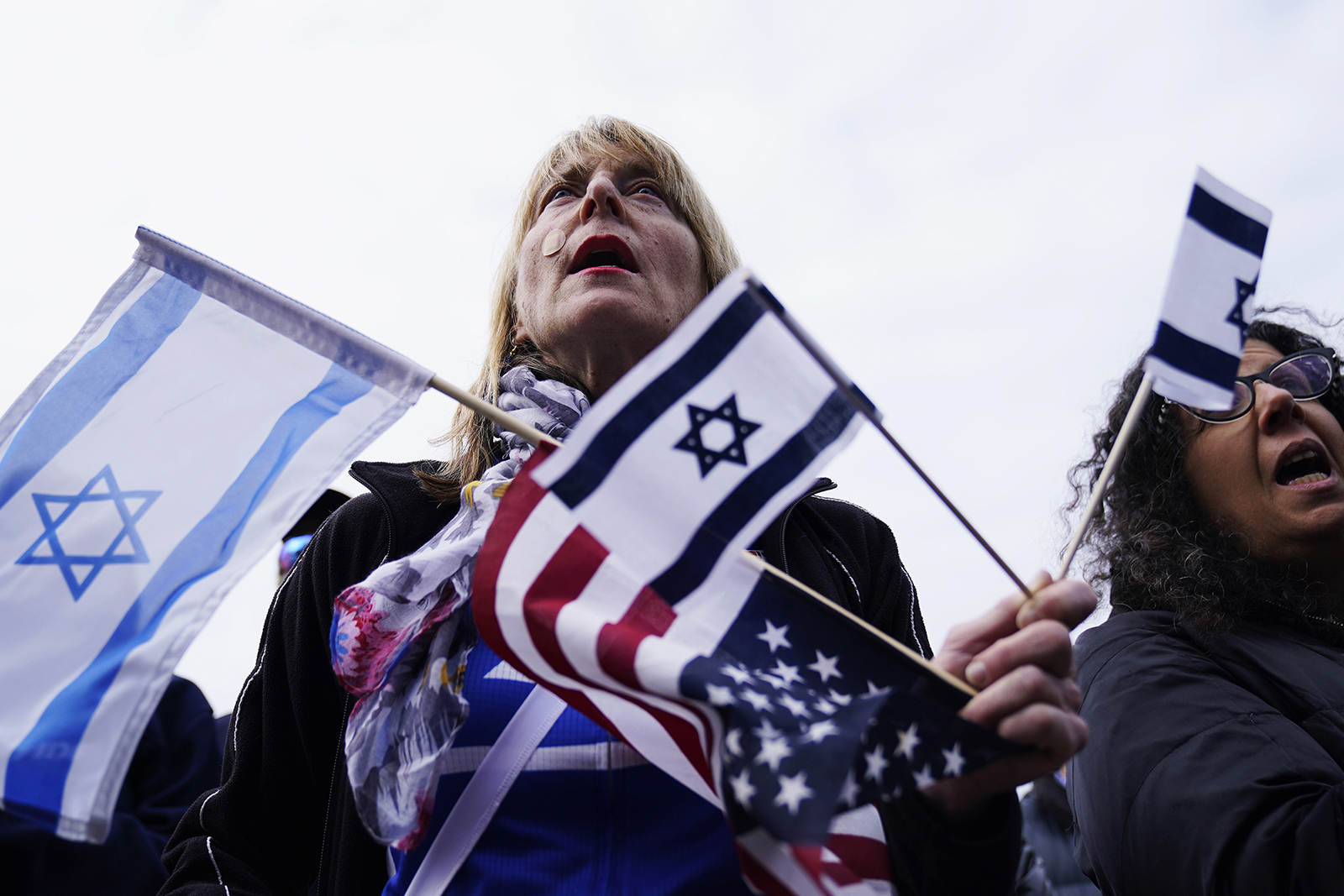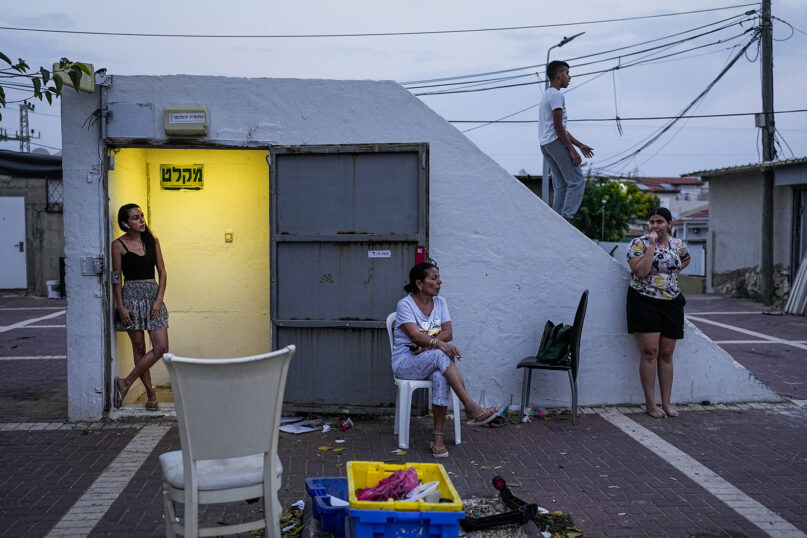JERUSALEM (RNS) — On the morning of Oct. 7, when Hamas fired hundreds of rockets at the Israeli communities closest to the Gaza border, Keith Isaacson jumped into his armored Toyota pickup truck and headed toward the local Israeli Defense Force base. Along the way, he encountered two heavily armed bands of terrorists who shot at his vehicle with assault rifles.
As the terrorists gunned down pedestrians on the street and drivers in their cars, Isaacson, the security chief of the Eshkol region, which lies just east of Gaza, survived thanks to the protection offered by his truck, a gift from an evangelical Christian organization.
“It’s the only reason I’m alive,” Isaacson told RNS last week.
The Toyota was one of four armored vehicles purchased for the Eshkol Regional Council by the International Fellowship of Christians and Jews in 2001, during the second Palestinian uprising. “They’re still saving lives, Isaacson said.
Although support for Israel has dwindled among younger evangelicals, according to a 2021 poll, it remains a core value for most, a Pew survey released in May found. Many view Israel’s creation in 1948 out of the ashes of the Holocaust as a fulfillment of biblical prophecy — and perhaps a prelude to the End Times. Others take the words in the Book of Genesis to heart: “I will bless those who bless you (Israel), and whoever curses you I will curse; and all peoples on earth will be blessed through you.”
These theological ties to Israel have been accompanied by fundraising and other material support for Israeli municipalities, NGOs and first responders. These longstanding connections made it possible for evangelical groups to mobilize within hours of Hamas’ attack.
The Christian groups have launched special fundraising campaigns to assist the more than 200,000 Israelis forced to flee their homes following the massacre and ongoing rocket barrages. They have followed up with calls for prayers and by publicizing the plight of Israelis and foreign nationals kidnapped to Gaza by Hamas.

A supporter holds Israeli and American flags at a solidarity event in Glencoe, Ill., Tuesday, Oct. 10, 2023. (AP Photo/Nam Y. Huh, File)
“I don’t think we’ve ever raised so much money so quickly,” said David Parsons, vice president and senior spokesman for the International Christian Embassy Jerusalem, which raised millions of dollars in the first days of the war. “People are responding like never before.”
It has been especially moving, he said, to receive donations from “unusual” places, like Mongolia, Nepal and Kazakhstan, “where people are poor, but want to help Israel.”
The embassy, which previously donated bomb shelters and secure communications systems for first responders that have reportedly saved lives since Oct. 7, is helping to support displaced people and provide additional ambulances and several bomb shelters with the money raised in October.
Parsons said the organization is dedicated to addressing the long-term needs of survivors in southern Israel if and when they return to farming their kibbutzim or decide to settle elsewhere. “Those who decide to come back, we will walk with them all the way to the road to recovery,” he said.
The International Fellowship of Christians and Jews, which furnished Isaacson’s truck, was on the ground soon after the Saturday morning attack, distributing flak jackets and first responder kits, according to CEO Yael Eckstein. In the days since, it has positioned 30 mobile bomb shelters along Israel’s northern border to protect against Hezbollah rockets coming from Lebanon, where cross-border fighting erupted after the Hamas attacks in the south.
Some of the $14 million raised within the first few weeks by IFCJ has been used for immediate needs, including vehicles to transport elderly and disabled people from the war zone and to feed thousands of displaced families. An emergency war campaign by the Genesis 123 Foundation allowed it to send survivors of a farming community to a hotel for two weeks and provide “non-lethal equipment” such as bullet-proof vests, as well as Shabbat meals and laundry detergent to IDF soldiers in the field
But like the International Christian Embassy, the Christian groups are planning to provide long-term assistance. Genesis 123 is considering the traumatic effects of the war on youth and the economic impact on farmers whose crops cannot be harvested. “For many of the farmers, their livelihood has been decimated. There is no one to work their fields,” said Jonathan Feldstein, the group’s president.
Aid workers from Bridges for Peace, which feeds thousands of Israelis every month, managed to deliver essentials to people in bomb shelters a few miles from the Gaza border as air raid sirens were blaring, said Ilse Strauss, the organization’s bureau chief in Israel. “We’re doing whatever needs doing.”
In partnership with the Isaiah Project, Bridges for Peace will provide appliances for 50 families whose homes were destroyed and sponsor mental health services.
Strauss said the motive of evangelical Christians is simple. At a time when hundreds of other organizations around the world are focused on supporting Palestinians in Gaza whose homes have been destroyed by Israel’s military response, “we want to make sure the world doesn’t forget the 1,400 Israelis and foreigners who were murdered and the 240 Hamas is holding captive in Gaza.
“Strangely, it seems that the Hamas attack has sparked hatred against Jews that was simmering under the surface,” said Strauss. “We want survivors to know there are thousands and thousands of people who will probably never come to Israel but who are praying for them.”





